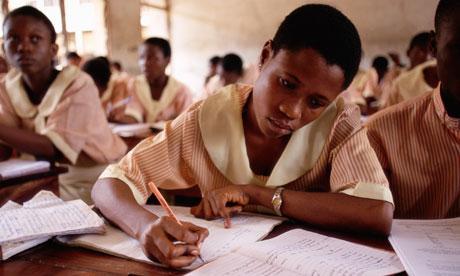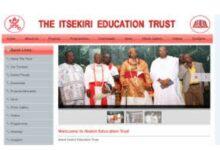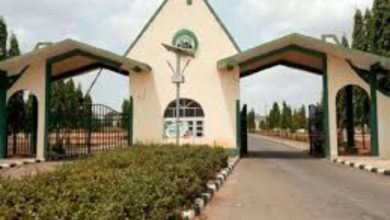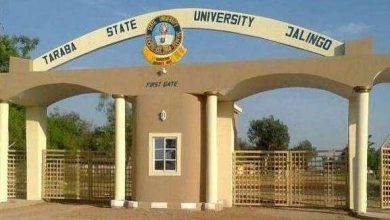
10 Factors Affecting the Implementation of Universal Basic Education in Nigeria
Factors Affecting the Implementation of Universal Basic Education in Nigeria – Universal Basic Education (UBE) is a program in Nigeria that aims to provide free and compulsory basic education for all children of school-going age. The program was implemented in 1999 by the Nigerian government to achieve universal primary education and increase literacy rates in the country. The UBE program covers six years of primary education and three years of junior secondary education.Information Guide Nigeria
The curriculum includes subjects such as English, mathematics, science, and social studies. The program also focuses on providing education to marginalized groups, such as girls and children from low-income families. The implementation of UBE in Nigeria has faced challenges, such as a lack of funding and inadequate infrastructure, but the government and various organizations have been working to address these issues and improve the quality of education for all children in Nigeria.
👉 Relocate to Canada Today!
Live, Study and Work in Canada. No Payment is Required! Hurry Now click here to Apply >> Immigrate to CanadaRead Also: 10 Factors Affecting the Productivity of Pasture in Nigeria
What is Education?
Education is the process of acquiring knowledge, skills, values, beliefs, and habits. It can take place in formal or informal settings and can be self-directed or facilitated by teachers or instructors. The ultimate goal of education is to develop the cognitive, emotional, and social skills of individuals so that they can live fulfilling and productive lives.Factors Affecting the Implementation of Universal Basic Education
What is the Implementation of Universal Basic Education?
Universal basic education (UBE) refers to a government policy of providing free and compulsory education to all children of a certain age within a country. The implementation of UBE can vary depending on the country, but generally, it involves the construction of schools and hiring of teachers, as well as the development of curriculum and educational materials. Additionally, UBE programs often include initiatives to improve the quality of education and address issues such as poverty and gender inequality, which can act as barriers to education.
When was Universal Basic Education in Nigeria Established?
The Universal Basic Education Act established Universal Basic Education (UBE) in Nigeria in September 2000.
Who is the Current Chairman of Universal Basic Education?
Wahab Olawale Alawiye-King, who hails from Lagos Island in Lagos State, was appointed as the Executive Chairman of the Lagos State Universal Basic Education Board (LASUBEB) in September 2019. He holds a Bachelor’s degree in Finance from Brooklyn College, City University New York, which he obtained between 1995 and 1998, as well as an MSc degree.
Read Also: 10 Factors affecting the size of Labour Force in Nigeria
Who is the Funder of Universal Basic Education?
President Olusegun Obasanjo officially introduced Universal Basic Education (UBE) on September 30th, 1999. The goal of UBE is to make education free and mandatory for all. Is Kwasu One Of The Best University In Nigeria
Address of Universal Basic Education in Nigeria
Zone 4, 7 Gwani St, Wuse 904101, Abuja, Federal Capital Territory.
👉 Relocate to Canada Today!
Live, Study and Work in Canada. No Payment is Required! Hurry Now click here to Apply >> Immigrate to CanadaTypes of Universal Basic Education in Nigeria
In Nigeria, there are several types of universal basic education (UBE) programs that have been implemented over the years. These include:10 Best Loan Apps in Nigeria Without ATM Card
1. The Universal Basic Education (UBE) Act of 2004:
This act made primary and junior secondary education free and compulsory for all Nigerian children between the ages of 6 and 15. The act also established the Universal Basic Education Commission (UBEC) to oversee the implementation of the program.
2. The National Mass Education Program (NMEP):
This program was launched in 1978 as an initiative to improve literacy rates in Nigeria. It focused on providing adult literacy classes and non-formal education for out-of-school children.
3. The Al-Makura Basic Education Project:
This program was launched in 2010 by the Governor of Nasarawa State in Nigeria. It aimed to improve the quality of basic education in the state by building new schools, renovating existing ones, and providing teachers with training and resources.NYSC Portal
4. The Education Trust Fund (ETF):
This fund was established in 1993 to provide financial assistance to states in Nigeria for the development of basic education. The ETF is primarily funded by a 2% education tax on companies operating in Nigeria.JAMB Portal
5. The Basic Education Sector Transformation (BEST) Program:
This program was launched in 2016 by the Federal Government of Nigeria to improve the quality of basic education in the country. It focuses on increasing access to education, improving the quality of teaching, and strengthening the management and administration of basic education.
Read Also: 10 Factors Affecting Human Capital Development In Nigeria
Implementation of Universal Basic Education and the Nigeria Society
Universal Basic Education (UBE) in Nigeria was implemented in 1999 as a response to the country’s low literacy rates and inadequate educational infrastructure. The program was established by the government through the Universal Basic Education Act, which made nine years of basic education compulsory for all Nigerian children between the ages of 6 and 15. The UBE program aimed to provide free and compulsory education to children and to improve the quality of education in Nigeria.JAMB Result
The government also implemented policies to improve teacher training and increase the number of schools and classrooms. However, UBE implementation has been hindered by a lack of funding, inadequate infrastructure, and a shortage of qualified teachers. The UBE program is still ongoing and is being monitored by the Universal Basic Education Commission (UBEC) to ensure that the goals of the program are being met.
Factors affecting the Implementation of Universal Basic Education in Nigeria
Several factors can affect the implementation of universal basic education in Nigeria, some of which include:
1. Funding:
Insufficient government funding has been a major obstacle to the implementation of universal basic education in Nigeria.200 romantic love message for her
2. Corruption:
Corruption has also played a role in hindering the implementation of universal basic education in Nigeria, with funds earmarked for education often being misused or embezzled.
3. Political Instability:
Political instability and lack of continuity in government policies have made it difficult to implement and sustain universal basic education in Nigeria.
Read Also: 10 Factors Affecting Reproductive Health In Nigeria
4. Inadequate Infrastructure:
A lack of schools, classrooms, and other educational infrastructure has made it difficult to provide universal basic education in Nigeria.
5. Teacher Shortages:
There is a shortage of qualified teachers in Nigeria, which makes it difficult to provide universal basic education.
6. Poor Quality of Education:
The quality of education in Nigeria is often poor, which makes it difficult to provide universal basic education.105 good morning messages
7. Cultural Barriers:
Traditional cultural practices and beliefs serve as barriers to universal basic education in Nigeria.
8. Socio-economic Factors:
Poverty and other socio-economic factors make it difficult for families to afford to send their children to school.
9. Inadequate Government Policies:
Government policies on education have not been effective in providing universal basic education in Nigeria.
10. Ethnic and Religious Conflicts:
Ethnic and religious conflicts in Nigeria have made it difficult to provide universal basic education, particularly in the Northern region of the country.
Read Also: 10 Factors Affecting Trade Union In Nigeria
Conclusion
The implementation of universal basic education in Nigeria has been a challenging task but has made significant progress in recent years. Despite the efforts of the government and various organizations, there are still many barriers to achieving universal basic education in Nigeria, including a lack of funding, inadequate infrastructure, and a shortage of qualified teachers.
However, ongoing initiatives and investments in education have the potential to improve access to basic education and help Nigeria reach the goal of universal basic education. The government and other stakeholders must continue to prioritize education and work together to remove the barriers to universal basic education in Nigeria.
Check JAMB RESULT
Check and Confirm: How much is Dollar to Naira








